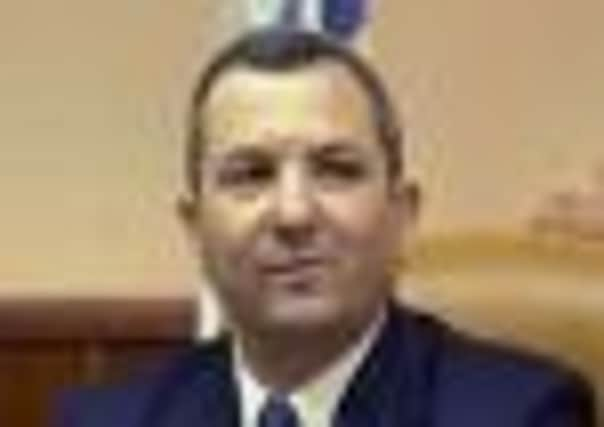Attack on Syria ‘shows Israel means what it says’


Israel has maintained official silence over last Wednesday’s raid, which Syria said targeted a military research centre north-west of Damascus.
Speaking at a security conference in Munich yesterday, Mr Barak said: “I cannot add anything to what you have read in the newspapers about what happened in Syria several days ago.
Advertisement
Hide AdAdvertisement
Hide Ad“But … when we say something we mean it. We say that we don’t think it should be allowable to bring advanced weapons systems into Lebanon.”
Diplomats, Syrian rebels and security sources said Israeli jets bombed a convoy near the Lebanese border last Wednesday, apparently hitting weapons destined for the Lebanese militant group Hezbollah, which fought a 34-day war with Israel in 2006.
Syria denied the assertions, saying the target was the Jamraya complex on the north-west fringe of Damascus, eight miles from the border.
Some of the diplomats and security sources said the apparently contradictory accounts might refer to the same incident, given Jamraya’s proximity to the border and the fact that vehicles inside the complex were hit as well as buildings.
Syrian television broadcast footage from the Jamraya base yesterday, showing extensive damage to buildings and several heavy military vehicles which appeared capable of carrying missiles. At least one vehicle, with light desert khaki markings, was equipped with what looked like a satellite dish.
Several burnt-out cars and lorries – including one with a large hole smashed through the roof of the driver’s cabin – could also be seen, as well as the badly damaged interior of an office.
Until Mr Barak’s comment, Israel had maintained silence over the attack, as it did in 2007 when it bombed a suspected Syrian nuclear site – an attack that passed without Syrian military retaliation.
Syria’s ambassador to Lebanon warned last Thursday that his country could take “a surprise decision to respond”, but gave no details. Damascus protested to the United Nations, saying it considered the raid a violation of a 1974 military disengagement agreement which followed the last major Israeli-Syrian war.
Advertisement
Hide AdAdvertisement
Hide AdIn his first reported response to the attack, president Bashar al-Assad accused Israel yesterday of seeking to destabilise Syria and said Damascus was able to confront “current threats… and aggression” against it.
Mr Assad made the remarks in a meeting with Saeed Jalili, Iran’s national security council secretary. He pledged Tehran’s “full support for the Syrian people … facing the Zionist aggression, and its continued co-ordination to confront the conspiracies and foreign projects”.
The Syrian president, Shiite Iran’s closest Arab ally, is battling a 22-month-old uprising in which 60,000 people have been killed. Mr Assad says the rebels are Islamist terrorists funded and armed by Turkey and Sunni Muslim Gulf Arab states.
Syria’s opposition leader flew back to his Cairo headquarters from Germany yesterday to explain to sceptical allies his decision to talk with Mr Assad’s main backers, Russia and Iran, in the hopes of making a breakthrough in the crisis.
The Russian and Iranian foreign ministers, and US vice-president Joe Biden, portrayed Syrian National Coalition leader Moaz Alkhatib’s willingness to talk with the Assad regime as a major step towards resolving the war.
“If we want to stop the bloodshed we cannot continue putting the blame on one side or the other,” Iran’s foreign minister, Ali Akbar Salehi, said.
However, one of Mr Alkhatib’s colleagues on the 12-member politburo of the Syrian National Coalition, said: “He has created a political firestorm. Meeting the Iranian foreign minister was totally unnecessary because it is useless. Iran backs Assad to the hilt and he might as well have met with the Syrian foreign minister.”